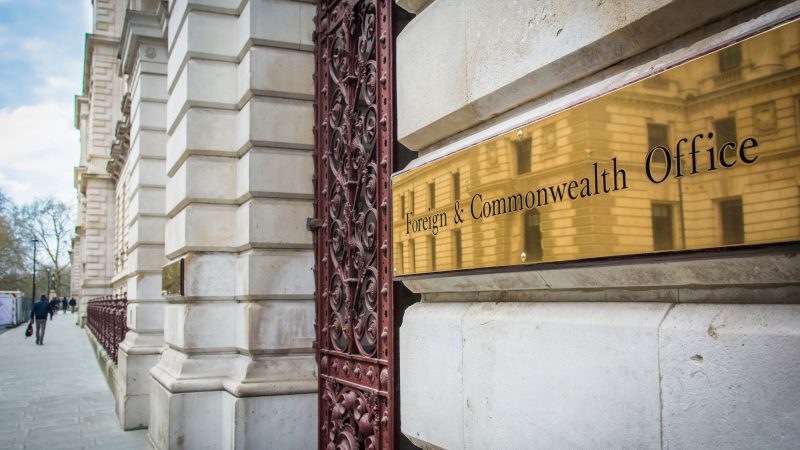
We all watched with horror as the devastating scenes in Afghanistan unfolded over the past month. The withdrawal inflicted a great human tragedy and has given us cause to reflect on the impact of UK foreign policy decisions.
20 years on from the fall of the Twin Towers and beginning of the ‘War on Terror’, much has changed in the world. We face new threats associated with climate and technology, newly assertive regimes around the world and the ever-present impacts of conflict and fragility. We have left the EU and yet to define a vision for building a new relationship with some of our oldest and closest allies.
At the same time, our unprecedented levels of connectivity are enabling people around the world to unite and organise in the blink of an eye. This should provide us with greater opportunities for information sharing and collaboration than ever before. UK foreign policy needs to reflect these changes and learn lessons from our decisions of the past.
As we head into conference season, we have the opportunity to ask challenging questions about the future of UK foreign policy and how Labour carves a distinctive vision of Britain in the world from the one offered by the current government.
How do we reconcile the strengths and weaknesses of our past and our new status outside the EU with the global role we want to play in the future? How do our values practically inform the very difficult trade-offs that inevitably come from operating in a globalised, rapidly changing, world? How do we harness new technologies and new actors in building a more inclusive approach to foreign policy? And how do we use our existing roles within multilateral institutions to support genuine reform?
It will not be easy. Answering questions like these require us to examine our objectives, our ways of operating, the strength of our relationships and our long-held assumptions. We will need to be open and responsive to the lessons of the past and of unfolding current events. We must be ready to respond to an evolving agenda that integrates trade, climate, human rights, diplomacy, security and technology.
One year ago, we founded Labour Foreign Policy to ask those difficult questions and include our members in the policy conversation. We want to hear your views. We want to help the party better understand and reflect the priorities and expertise of its members – to respond to what you think the biggest threats facing the UK are, what the principle objectives of our foreign policy should be and what headline policies the party should pursue.
Please take five minutes to fill out our survey and share your views by following this link. The findings of this survey will be fed into our contribution at Anneliese Dodds MP’s Stronger Together Britain in the World event at Labour Party conference.
We want Labour to play a leading role in defining the UK’s new relationship with the world – its priorities, its values and its orientation. Help us to be part of defining that direction.
Labour Foreign Policy Group is co-hosting Anneliese Dodds MP Stronger Together Britain in the World event at Labour Party conference, Monday 27th September, 9am – 10am, Hilton Brighton Metropole, Durham Hall Room 2. Speakers include Lisa Nandy MP, Emily Thornberry MP, Preet Gill MP, Jessica Toale (co-chair LFPG), David Taylor (vice-chair LCID) and Mariela Kohon (ITUC).




More from LabourList
‘The High Court judgment brings more uncertainty for the trans community’
‘There are good and bad businesses. Labour needs to be able to explain the difference’
‘This ruling should now remove any remaining barrier to approval of EHRC code’